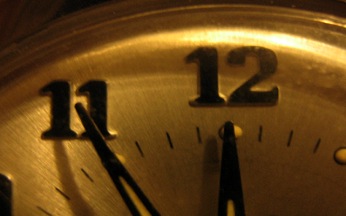
CASE #27: What Time Is It Now?
In The Selection of the Time, Nichiren writes: “When it comes to studying the teachings of Buddhism, one must first learn to understand the time.”
BACKGROUND:
The Selection of the Time
One of Nichiren Daishonin’s five major treatises, written on Mt. Minobu in 1275, one year after entering his final exile. Elsewhere Nichiren sets forth five guidelines for the successful propagation of Buddhism. One must have a correct understanding of: (1) the teaching, (2) the people’s capacity, (3) the time, (4) the country, and (5) the sequence of propagation. The Selection of the Time concerns itself primarily with the third of these. The present koan cites the opening sentence of that treatise.
To understand the time
According to Mahayana tradition, Buddhism was destined to pass through three distinct phases following Shakyamuni’s death. During the Former Day of the Law, the teachings of Buddhism would be able to enlighten those who embraced them. During the Middle Day, the teachings would become over-institutionalized and would work only for a few resolute souls who could summon up the diligence necessary to recover them in their degraded state. By the Latter Day of the Law, they wouldn’t work at all. Japanese Buddhists of Nichiren’s day believed they were living in the Latter Day of the Law—a time of widespread corruption and moral decline during which Buddhism would need to be reformed in order to survive.
NOTE: The time frame said to have elapsed between the Former and Latter Day of the Law is only about 2,000 years—an eye-blink in the history of our species.
COMMENTARY:
Nichiren asked, “What time is it?” The Nichiren School was his answer. Honen asked the same question. His answer was the Pure Land School. Even Dogen asked the time and gave his own answer. If you want to keep your religion, there’s no choice but to reform.
But what if you want to keep your species? We can reform religion all we want and it’ll be pointless if our species has taken a wrong turn. What times is it now? Time for something far bigger, and more basic, than religious reform.
VERSE:
Man walks up to you
On the street and says, “ ‘Scuse me,
Do you know the time?”
If you look at your wristwatch,
The Buddha will walk away.
Thank you for subscribing to Tricycle! As a nonprofit, we depend on readers like you to keep Buddhist teachings and practices widely available.